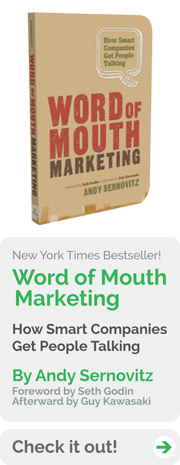12:49 — Andy Sernovitz introduces Hugh MacLeod, author of Ignore Everybody: And 39 Other Keys to Creativity.
12:50 — “Im not a cartoonist. I’m a marketing guy stuck in a cartoonist’s body.”
12:51 — “I used to work in an advertisinz agency. It’s funny to find yourself at 22-23 hired to be creative. To come up with advertising campaigns.”
12:51 — The thing about the creative business is that it changes all the time. We can make the changes we want or react to the changes we don’t want. With the internet it’s easier to make changes.
12:52 — I wrote this book that was a personal manifesto on creative acitivity. The thing that makes a person want to draw makes someone else want to create a dot com. The more I think about personal creativity, the more I see how it applies to everything.
12:53 — Success in the future isn’t about going to the right schools, but about harnessing our own creativity. You guys are all successful. If you want to be successful, you have to get more creative.
12:53 — When we talk about business’ language we think about success as a function of process. Marketing, sales, HR, MBA kinds of words. You had to manage all that. Become excellent. “Excellence” was a hot buzzword in the late ‘70’s. (Thank you Tom Peters.)
12:54 — But that word reached com-modification. Like Wal-Mart. You’re excellent, but those guys can make it cheaper.
12:54 — The trick now, and why we’re all here, is to de-commodify ourselves. No longer an excellent cog in an excellent wheel. We want to figure out what is unique about us. To be successful we have to figure that out. “To me, it’s creativity.”
12:55 — Create or die. What can you create that nobody else can? I’m not the most technically gifted writer or artist, but with all that creativity….
12:56 — “Creativity is as important as literacy,” Sir Ken Robinson. But it’s not true. “You’ll never get a job with those cartoons, MacLeod.” Can creativity be taught? It can’t be taught but it can be valued.
12:56 — We all work for a living, and we want to make a difference. Wal-Mart and China have beat us to the ordinary game. We have to do something creative, and different. It isn’t being better than Dwight from Harvard.
12:57 — Artists actually work for a living. What seven things do I do that are important to me which should be important to everyone in the new world of work:
12:58 — 1. Play: What’s important to babies? What’s the first ting you learn to do? Play! Babies see a connection to sound and movement with a rattle. Play is not happy inherently. Play is about finding connection. The Lord made us to make connections. Babies make connections and it makes them happy. Spotting connectivity is not what’s learned in traditional schools.
12:59 — 2. Explore: We’re all pissed off—because we’re born that way. We have this gene that makes us pissed off and it got us out of caves. It’s a survival tool. Otherwise we’d stay in the cave and starve.
1:00 — 3. Reinvention: I have to reinvent myself all the time. You get a job and your job is going to change. That’s normal and natural. To be in a constant state of evolution.
1:00 — 4. Do the opposite: Do something interesting. Don’t sell a commodity. When the market zigs, you zag.
1:01 — 5. Be inspired: If you can’t be inspired yourself, you can’t inspire others. When he draws a cartoon, he thinks of a great musician. How can you create if no one’s created for you?
1:01 — Context: The right time in the right place. Bill gates predicted iPhone, but Steve Jobs made it.
1:02 — 7. Fail: “Fail fast. Fail cheap. Fail often,” Esther Dyson. “I don’t mean embrace being a loser all your life. Learn something from it.”
1:02 — “Those are the 7 things that matter to me.”
1:03 — Always wanted to draw. “I thought ‘How do I do something with the cartoons I draw?'”
1:03 — Teamwork (shows “Teamwork” inspirational poster—has anxiety attack).
1:04 — Shows “Above & Beyond” poster. I know they’re trying to motivate people, but they ain’t.
1:04 — Shows west Texas desert and replica Prada store. Not a real store, just a replica. It’s art. The cowboys shoot at it. Asks dad why they do it. “Well, people know when they’re being patronized.” It’s patronizing. At the same time, how can you inspire without being patronizing?
1:05 — People download his art and hang it in their cubicles. “Create or Die” is all over the place.
1:05 — Back when he was a kid there was, “Quality is Job 1,” from Ford. Do people actually talk like that? No they don’t.
1:06 — Being totally fucking amazing is job one—from a Hugh Cartoon
1:06 — “Have you hugged your client today?” A monster with arms out to hug. Lawyers like that one.
1:07 — On failure, “I like to fail. And people like to laugh when I fail.”
1:07 — Shows series of slides. “Whining is not an exit strategy.” “inspire—be inspired.” ” All entrepreneurs are aspiring entrepreneurs.”
1:08 — You can’t be creative if you don’t embrace change.
1:08 — “Would anybody tell a friend?” “Advertising is the cost of being boring.”
1:09 — “I’m creative for a living, but we all have to be creative from now on. The reason we buy books like Cluetrain and Groundswell is that we want to lead creative lives. It’s ok because God made you creative and curious and playful. So, Thank you.”
Informal conversation
Love this live coverage? It’s all thanks to the amazing Tish Grier.


